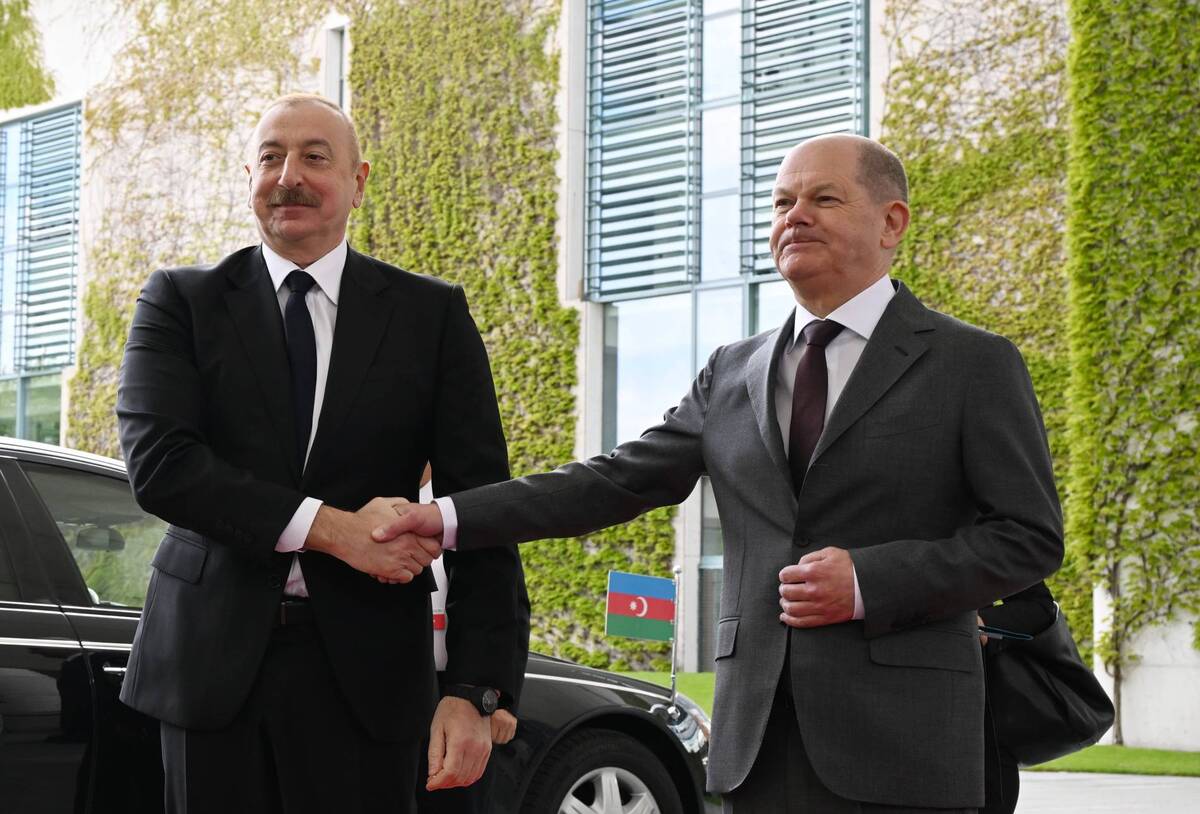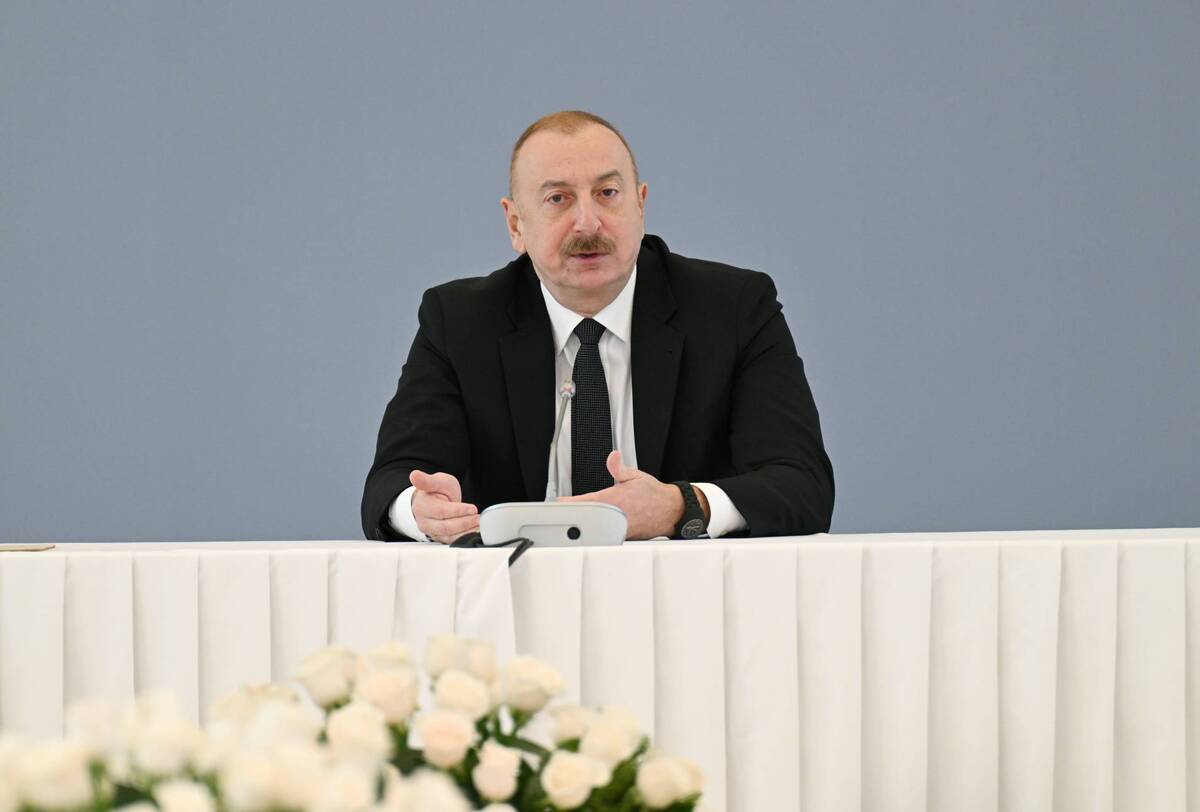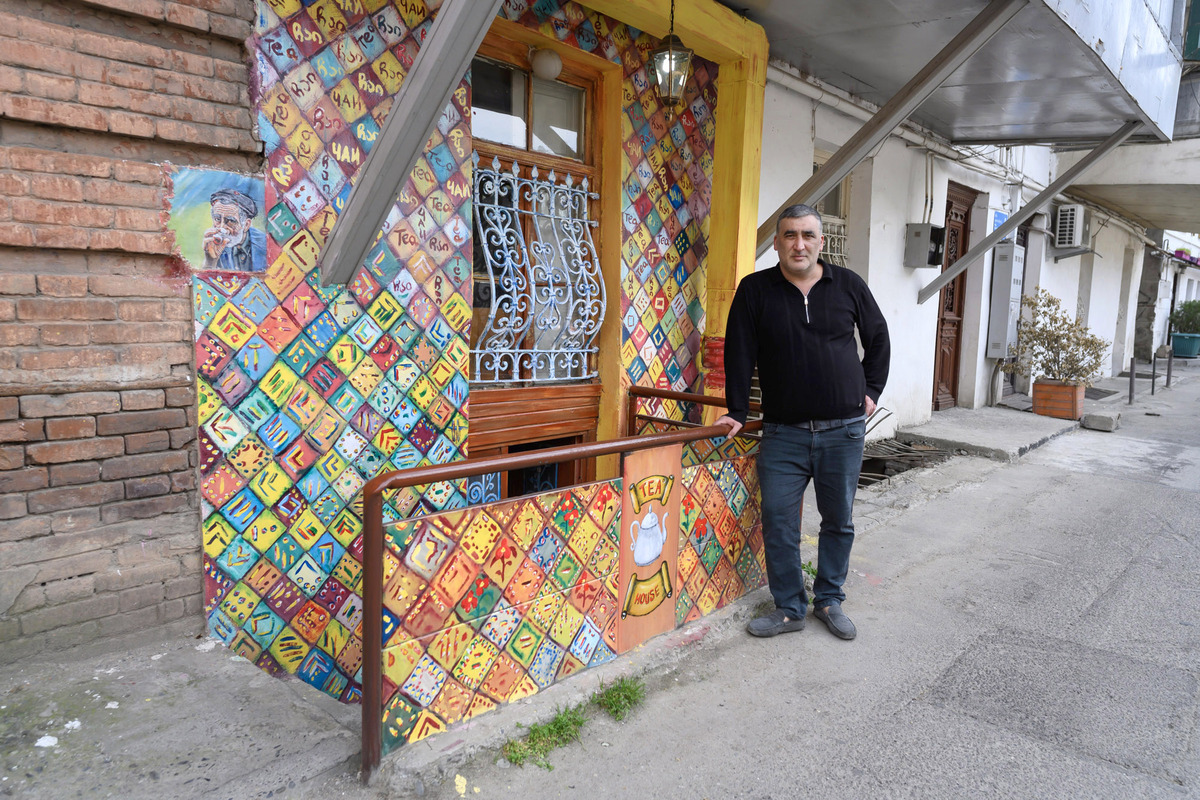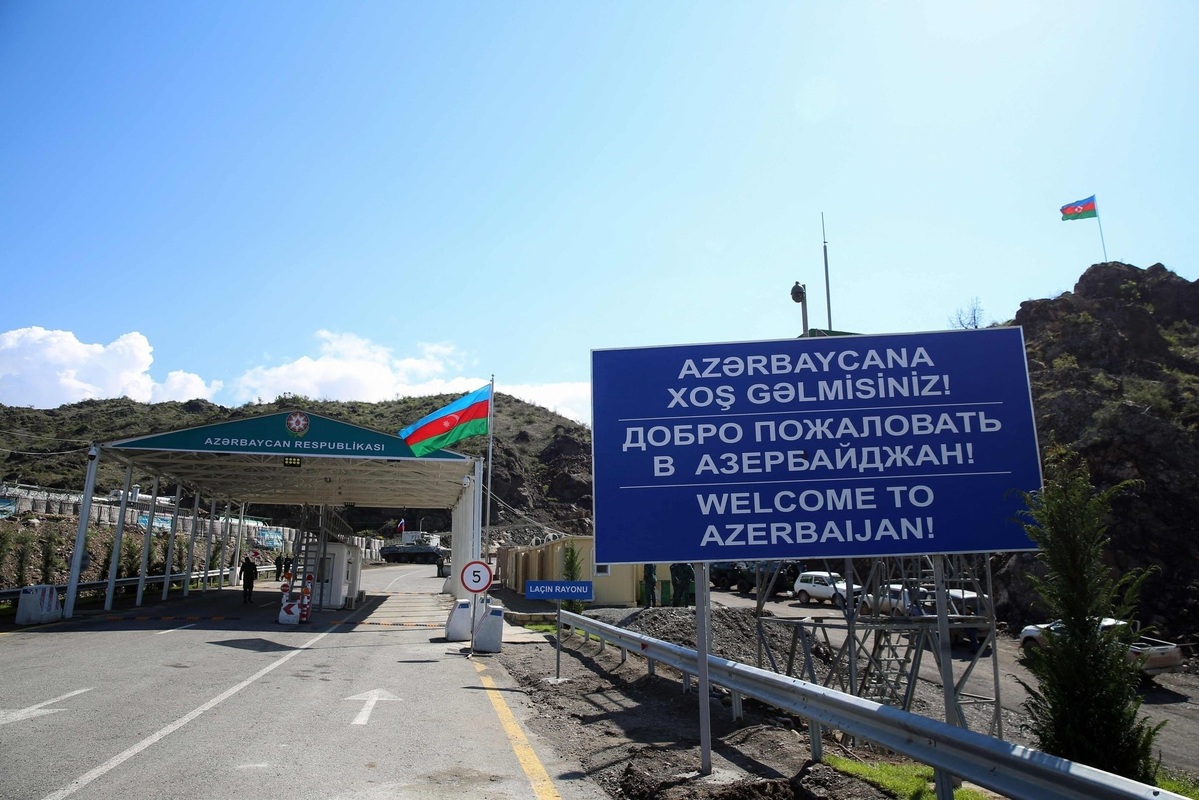- Home
- Aliyev Raises Flag in Khankendi
16 October 2023
Aliyev Raises Flag in Khankendi
Azerbaijan symbolizes its sovereignty over its previously occupied territory with the raising of its flag in numerous Karabakh towns and cities, including Khankendi.

Image: president.az
During a visit to Karabakh on Sunday, Azerbaijani President Ilham Aliyev raised the Azerbaijani flag in several towns and cities, including Khojaly, the site of a February 1992 massacre against the ethnic Azerbaijani population. However, of notable importance was the raising of the flag in the central square of Khankendi.
The city, also known as Stepanakert by Armenians, was the capital of the NKAO, the unrecognized separatist regime that agreed to dissolve itself on 28 September, following 23 hours of counter-terrorism measures by Azerbaijan on 19 September. Aliyev’s visit to the city and the raising of the flag mark a historic moment in Azerbaijan and signals the restoration of the country’s full sovereignty over the territories that had formally been considered to be occupied by Armenian separatists for the last 30 years.
After raising the flag, Aliyev delivered a speech, during which he praised the country’s armed forces, paid homage to the memory of his father, President Heydar Aliyev, and discussed the history of Karabakh. Specifically, Aliyev referred to a more peaceful time in the region between 1969 and 1982, when Armenians and Azerbaijanis lived and worked together, and urged those with memories of that era to share them with the younger generation. These comments highlight Azerbaijan’s long-standing stance on aiming for the peaceful reintegration of Karabakh and a hope for friendly co-habitation. Similarly, Azerbaijan has repeatedly announced its intention to establish various social programs to assist Armenian citizens in Karabakh.
In interviews with Armenians who left Karabakh during late September ‘mass exodus,’ Human Rights Watch stated that one interviewee would consider returning to the region “if Azerbaijan allows Armenians to live there as a community—with Armenian schools, Armenian churches, and administration staff recruited from members of the community.” Similarly, yesterday, Pope Francis appealed to Azerbaijan to protect the Armenian monasteries and churches in Karabakh, stating that free expressions of faith signify a fraternity that makes it possible to live together despite differences. While there has been much conjecture on a potential religious aspect to the conflict, with frequent mention of “Christian Armenians” and “Muslim Azerbaijanis,” Azerbaijan is a religiously tolerant country, with a number of churches, synagogues, and other places of worship present throughout the country.
Additionally, on 5-9 October, the Centre of Social Research conducted a survey on the Azerbaijani public’s attitude toward the signing of a peace treaty with Armenia. According to the survey, 80.9% support a peace treaty. And President Aliyev has himself repeatedly stated his willingness to sign a peace treaty with Armenia. Most recently, last week at the 53rd meeting of the Council of Heads of Security Agencies and Special Services of the CIS Member Countries, Aliyev stated his readiness for the normalization of Armenia-Azerbaijan relations and his commitment to working on a peace treaty.
Various Armenian news reports have referred to Aliyev’s speech as “threatening,” mentioning part of the speech that included information about the ongoing detention of three former de facto presidents of the NKAO. In his speech, Aliyev stated that those incarcerated had challenged, threatened, and insulted Azerbaijan and are now awaiting trial. Additionally, he questioned if the de facto officials “will dare to threaten us now,” stating that this should be a lesson to them. It is important to note that one of the detainees is Arayik Harutyunyan, who ordered a missile strike on Ganja, Azerbaijan’s second-largest city, in 2020, which killed twelve civilians.
The raising of the Azerbaijani flag in Khankendi is undoubtedly a momentous occasion, showcasing Azerbaijan’s full sovereignty over its territories previously controlled by the separatist regime. Hopefully, this symbolic event will spur on the development of a much-needed peace treaty between Armenia and Azerbaijan, resolving years of uncertainty, fighting, and hostility.






